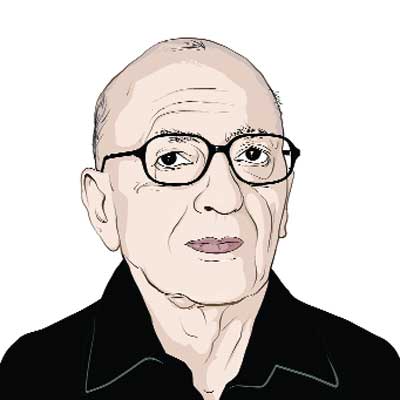Opinion Helping the US help us
AS hinted in the previous article in this series (IE,Dec 25),the humiliation of defeat in the border war with China in 1962 was followed...
AS hinted in the previous article in this series (IE,Dec 25),the humiliation of defeat in the border war with China in 1962 was followed by disillusionment with our Afro-Asian friends because of their lack of sympathy for our plight. In sharp contrast,sympathy in the usually indifferent western countries,especially the United States and Britain,was spontaneous and promises of support prompt. Indeed,some emergency arms supply started almost immediately. But as Krishna Menon embittered after being ejected from the Ministry of Defence remarked,with each gun came two military advisers and three reporters. Soon enough a large US military mission,headed by Brigadier-General Kelly,was established at the American embassy. However,negotiations for military assistance to cope with the Chinese challenge ran into difficulties and dragged on for years.
The initial American enthusiasm waned because of two reasons. The first was the unilateral Chinese cease-fire and Beijings commitment to withdraw from the occupied territory. India understandably found a short-term Anglo-American package of $120 million grossly inadequate. Secondly,and more importantly,America and Britain were both worried about Pakistans sensitivities about the flow of arms into India. Spurning President Kennedys assurance that any military aid to India would be for its immediate needs and for use against the Chinese only Ayub Khan demanded that Pakistan must have satisfaction over Kashmir. That is where the high-powered delegations from Washington and London came in. Averrel Harriman,the veteran US diplomat,headed the American team and Britains Commonwealth Secretary Duncan Sandys led his countrys delegation. The styles of the two men could not have been more different. Harriman,a man of impeccable courtesy,raised even the most sensitive issues with exquisite subtlety. Sandys,a blunderbuss,practiced only sledgehammer diplomacy,to borrow words from the Commonwealth Secretary in the Indian Foreign Office,Y. D. Gundevia.
By shuttling between Delhi and Rawalpindi almost constantly,the duo succeeded,according to Gundevia,in arm-twisting Nehru,normally a hardliner on Kashmir into starting negotiations with Pakistan to settle the Kashmir problem. Swaran Singh and Zulfikar Ali Bhutto were nominated as the negotiators. Their talks lasted for nearly half a dozen dreary rounds over as many months,to no avail whatsoever. The story of these conversations,sometimes boring or bizarre,and often resembling two crackled gramophone records with needles stuck in them,need a separate narration. For the present let us return to the slow,stilted and even frustrating negotiations for arms aid from America.
At one stage the two sides were so exuberant as to talk in terms of expanding the Indian Army to 50 divisions. But when they came to brass tacks,even a target of 25 divisions seemed hard to achieve. Other complications followed. But it would be wrong to blame only the American side. Indian negotiators also bungled. For instance,in the early stages India indented so many mortars that the Americans pointed out: A flotilla of Liberty ships would take weeks to bring the mortars to Indian shores,and given the state of Indian ports,unloading them might take another two months. On another occasion,the US lodged an official protest because the Chief of General Staff (now called the Deputy Chief of the Army Staff) gave the Pentagon information on Indian needs that was at variance with what the Army Chief,General J.N. Chaudhary,had conveyed to Gen. Kelly. In Ambassadors Journal,John Kenneth Galbraith writes about an Indian cabinet minister who visited him and argued that nothing short of $1 billion worth of military aid would do. The ambassador gently tried to puncture this pipedream. However,the real problem lay with American policy that was focused on Pakistans reaction.
As is well known,on November 19 and 20,just before the unilateral Chinese cease-fire,Nehru had written to Kennedy two rather abject letters (reportedly drafted by Foreign Secretary M.J. Desai). The US president sent to the Bay of Bengal a naval task force. Ironically,it was led by the nuclear carrier Enterprise that Nixon sent to the same waters during the Bangladesh War on a mission hostile to India.
There were sharp divisions within the Kennedy administration over military aid to India. The Pentagon leaned heavily on Pakistani side. Chester Bowles,who had by April 1963 replaced Galbraith as ambassador to India argued,on the other hand: If we dont do this right,they (India) would go to Russia,a forecast that proved prophetic. Bowless recommendation that India should be given arms aid worth $ 500 over five years was opposed by several of Kennedys advisers. Ultimately,a compromise was reached on $375 million. Kennedy fixed a meeting on November 26,to clinch the issue. Four days earlier he was assassinated. No wonder,Dennis Kuxs heading on the chapter on the Kennedy presidency in his book Estranged Democracies is Neither Kashmir nor India.
Some time in February 1964 President Lyndon Johnson blessed the figure of $375 million,divided between grant and low interest credit. But there was a catch,and a serious one. This country badly wanted F-104 supersonic aircraft,which Pakistan already possessed and would use in the 1965 War. America absolutely refused to give these because of vehement Pakistani objections.
Y.B. Chavan,as defence minister,discussed F-104s in Washington and went off to Seattle to see some production line. His hope of finalising some American aid programme before returning home was stymied by Nehrus death on May 27. On June 6,1964,Chavan and US Defense Secretary Robert McNamara settled all matters other than F-104s. That we did not get the coveted warplanes was a blessing in disguise. A decade later,when the infamous Lockheed scandal burst into the open,it was found that the aircraft was dangerous and was promptly nicknamed widow-maker. A European crown prince and a Japanese prime minister were among those brought to book. The countries that bought F-104s realised that they had been sold a pup. However,as arrangements to implement the American military aid programme were being made,there was an anti-climax.
The US stopped all military aid to India and Pakistan at the start of the 1965 India-Pakistan War.
The writer is a Delhi-based political commentator.





